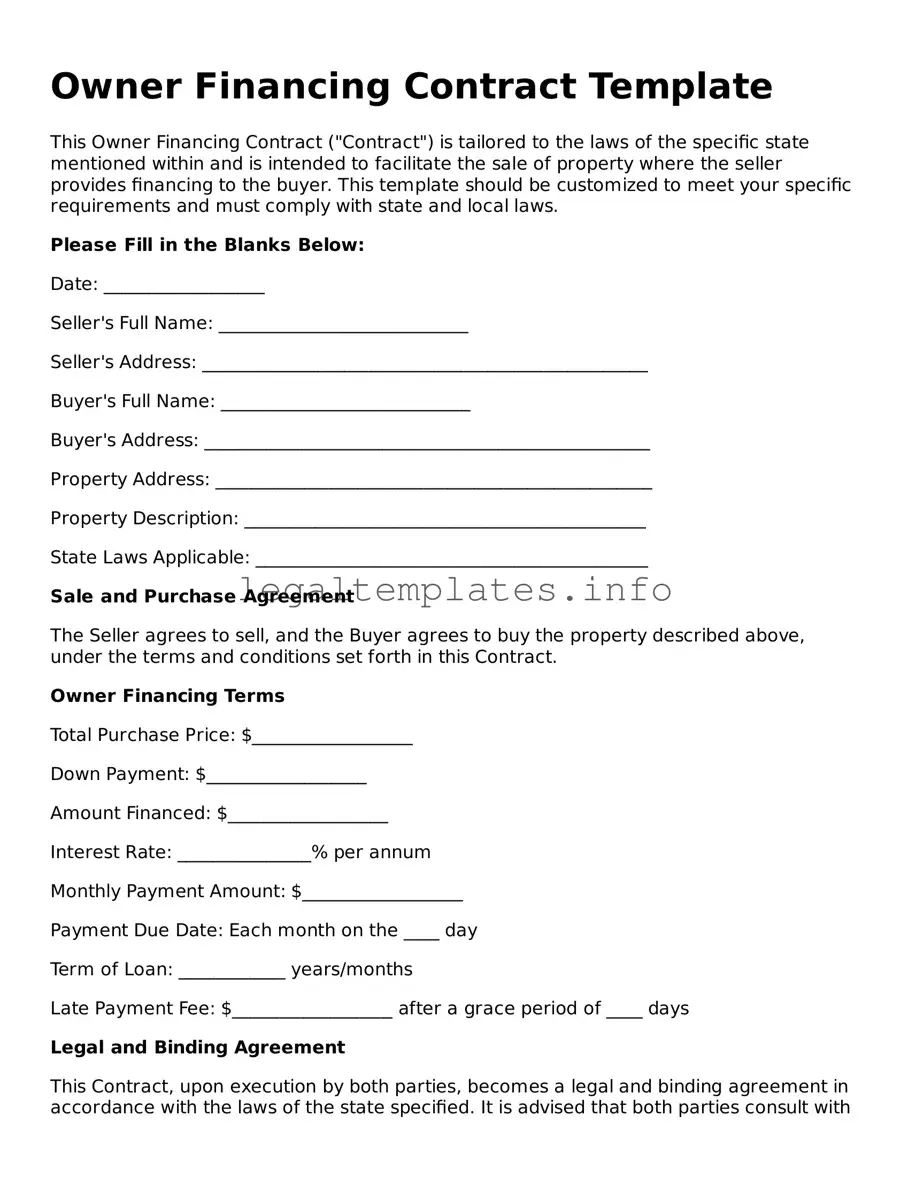Owner Financing Contract Template
This Owner Financing Contract ("Contract") is tailored to the laws of the specific state mentioned within and is intended to facilitate the sale of property where the seller provides financing to the buyer. This template should be customized to meet your specific requirements and must comply with state and local laws.
Please Fill in the Blanks Below:
Date: __________________
Seller's Full Name: ____________________________
Seller's Address: __________________________________________________
Buyer's Full Name: ____________________________
Buyer's Address: __________________________________________________
Property Address: _________________________________________________
Property Description: _____________________________________________
State Laws Applicable: ____________________________________________
Sale and Purchase Agreement
The Seller agrees to sell, and the Buyer agrees to buy the property described above, under the terms and conditions set forth in this Contract.
Owner Financing Terms
Total Purchase Price: $__________________
Down Payment: $__________________
Amount Financed: $__________________
Interest Rate: _______________% per annum
Monthly Payment Amount: $__________________
Payment Due Date: Each month on the ____ day
Term of Loan: ____________ years/months
Late Payment Fee: $__________________ after a grace period of ____ days
Legal and Binding Agreement
This Contract, upon execution by both parties, becomes a legal and binding agreement in accordance with the laws of the state specified. It is advised that both parties consult with a legal professional before signing.
Closing and Possession Dates
Closing Date: __________________
Possession Date: __________________
Signatures
Both parties affirm that all information provided in this Contract is true and accurate to the best of their knowledge and belief. Furthermore, they agree to abide by all the terms and conditions outlined herein.
______________________ ______________________
Seller's Signature Buyer's Signature
Date: __________________ Date: __________________
Notarization (If Applicable)
This section is to be completed by a notary public if required by the laws of the state governing this Contract.
State of __________________
County of _________________
On __________________ before me, __________________________________, personally appeared _________________________________, personally known to me (or proved to me on the basis of satisfactory evidence) to be the person(s) whose name(s) is/are subscribed to the within instrument, and acknowledged that they executed the same in their authorized capacity(ies), and that by their signature(s) on the instrument, the person(s), or the entity upon behalf of which the person(s) acted, executed the instrument.
WITNESS my hand and official seal.
Signature ____________________
(Seal)

